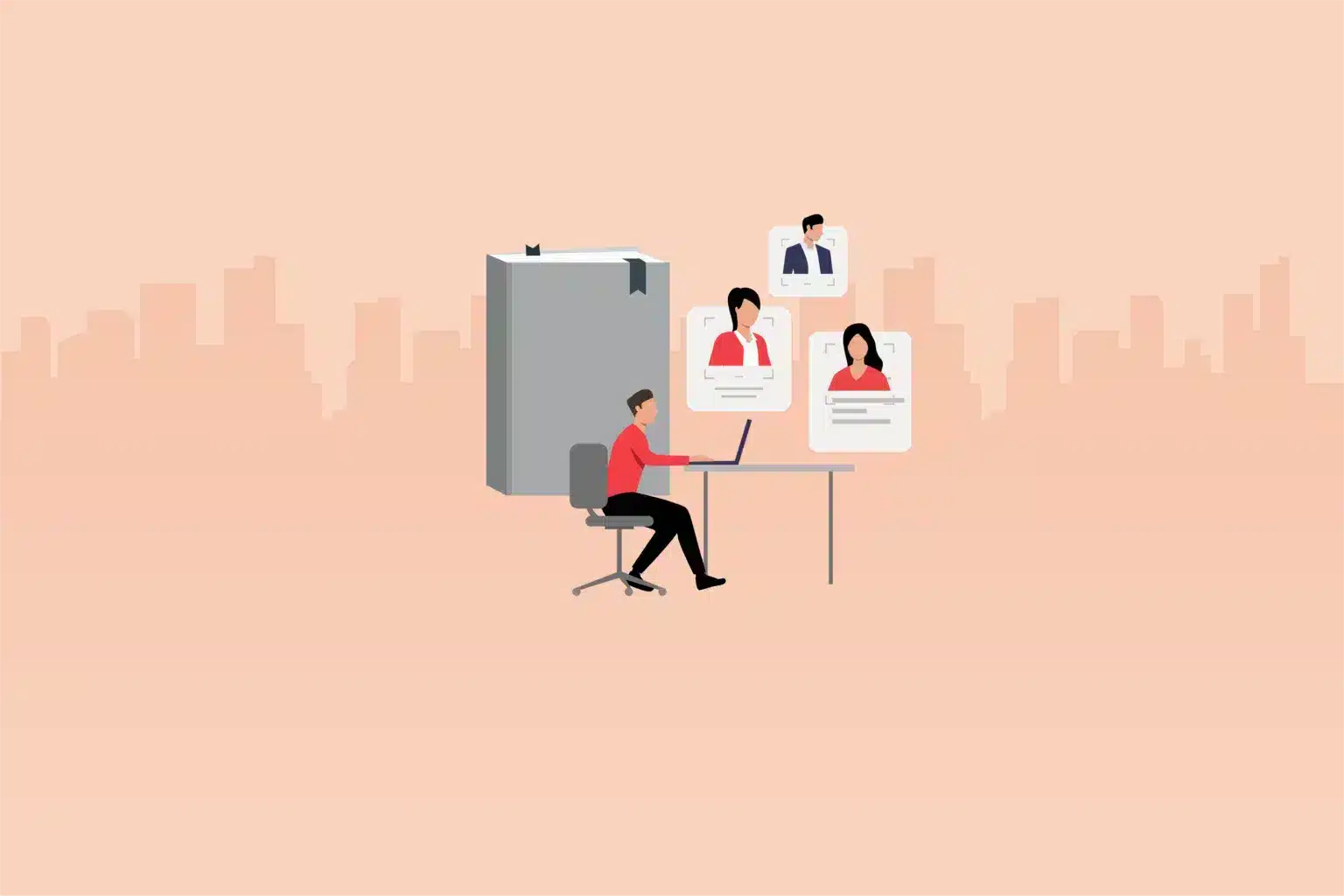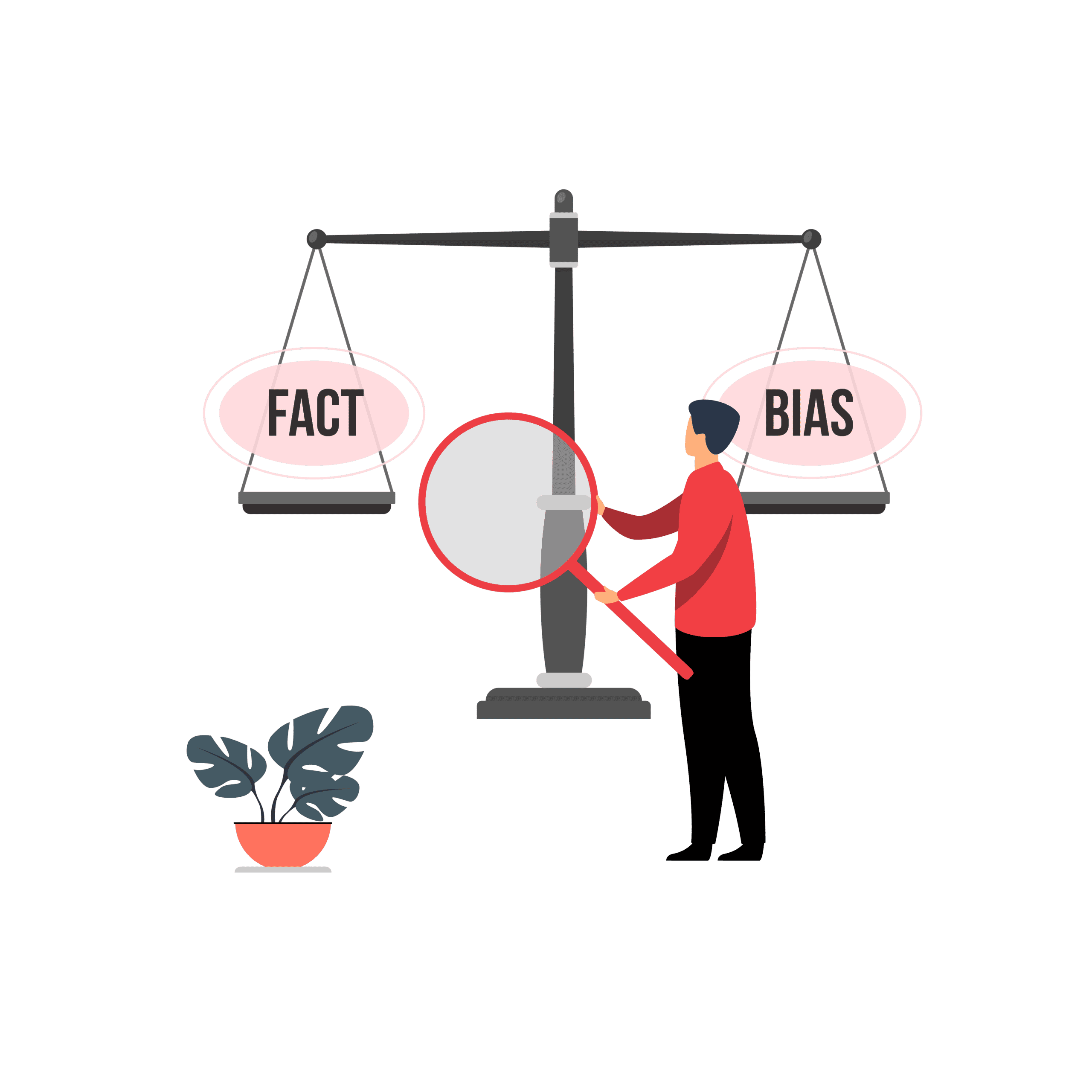A traditional or a modern job interview is just a part of a process to get to know whether a particular candidate would be a good fit for the job role that a HR is hiring for. Now conducting a job interviews may leave a negative or positive impression on the candidate which could increase or rapidly decrease the good will of the organization.
In this comprehensive guide, we delve into the essential elements of conducting an effective job interview. From understanding job requirements and preparing job interview questions to creating a welcoming atmosphere and evaluating skills and cultural fit, we provide valuable insights and best practices to help hiring managers excel in their interviewing process. Additionally, we explore the significance of handling difficult situations and behavioral questions with empathy and professionalism, and the importance of closing the job interview and managing post-interview steps to leave a positive impression on candidates.
Whether you are an experienced hiring manager looking to refine your job interview skills or a newcomer seeking guidance on the fundamentals, this guide equips you with the knowledge and tools to conduct interviews that result in finding the best-fit candidates for your organization.
Understanding the job requirements
Understanding the job requirements is a crucial first step in conducting an effective job interview. Before interviewing candidates, it is essential for the hiring team to have a clear and comprehensive understanding of the specific skills, qualifications, and attributes required for the position. This understanding ensures that the interviewers can accurately assess the suitability of candidates and make informed hiring decisions.
To comprehend the job requirements thoroughly, the hiring team should collaborate with the relevant stakeholders, such as the departmental head or team members, to gather insights into the key responsibilities and expectations for the role. This collaborative approach helps in identifying the critical aspects of the job and the qualities that will contribute to the candidate’s success in the position.
Preparing the job interview questions
Preparing the job interview questions is a pivotal aspect of conducting an effective job interview. Well-crafted and thought-provoking questions help interviewers assess candidates’ qualifications, skills, experience, and cultural fit with the organization. To ensure a comprehensive evaluation, interviewers must strategically design questions that delve into both technical competencies and behavioral attributes relevant to the job role.
Firstly, interviewers should tailor the questions to align with the specific job requirements. By doing so, they can gain insights into the candidate’s ability to handle the tasks and challenges associated with the position. Open-ended questions that encourage candidates to provide detailed responses are particularly valuable in understanding their thought processes, problem-solving abilities, and communication skills.
Creating a welcoming atmosphere
Creating a welcoming atmosphere is a crucial element in conducting an effective job interview. The interview setting plays a significant role in shaping the candidate’s experience and can greatly influence their performance and impression of the organization. A warm and inviting atmosphere helps candidates feel at ease, encouraging them to showcase their true abilities and potential.
To establish a welcoming environment, interviewers should begin by greeting candidates warmly and introducing themselves and the purpose of the job interview. Simple gestures such as offering a glass of water or asking if the candidate is comfortable can go a long way in making them feel relaxed and valued.
Active listening and positive body language from the interviewers contribute to the overall atmosphere. Maintaining eye contact, nodding to show understanding, and displaying genuine interest in the candidate’s responses create a sense of respect and openness.

Active listening and effective communication
Active listening and effective communication are fundamental skills that interviewers must possess to conduct an effective job interview. These skills not only foster a positive candidate experience but also enable interviewers to gather valuable insights and make well-informed hiring decisions.
Active listening involves giving the candidate undivided attention, focusing on their responses, and showing genuine interest in what they have to say. It requires interviewers to refrain from interrupting, allow candidates to complete their thoughts, and ask follow-up questions to clarify and delve deeper into their answers. By actively listening, interviewers can better understand the candidate’s qualifications, experiences, and motivations.
Effective communication is equally vital during the job interview. Interviewers should strive to convey information clearly and concisely, ensuring that candidates understand the questions asked and the context behind them. Using simple language and avoiding jargon helps eliminate any confusion or misinterpretation.
Evaluating skills and competencies
Evaluating skills and competencies is a central aspect of conducting an effective job interview. It involves assessing a candidate’s technical expertise, knowledge, and abilities relevant to the job role. By thoroughly evaluating these skills, interviewers can determine whether a candidate possesses the necessary qualifications to excel in the position.
To begin the evaluation process, interviewers should refer back to the job requirements and create a structured framework that outlines the key skills and competencies needed for the role. This framework serves as a guide during the interview and ensures that all relevant aspects are covered.
As the interview progresses, interviewers should use a combination of behavioral questions, situational scenarios, and technical tests to gauge the candidate’s proficiency in different areas. Behavioral questions allow candidates to showcase how they have applied their skills in past experiences, offering insights into their problem-solving abilities and decision-making processes. Situational scenarios present hypothetical challenges that allow interviewers to assess the candidate’s ability to handle real-world situations effectively.
Assessing cultural fit and values alignment
Assessing cultural fit and values alignment is a vital aspect of conducting an effective job interview. Cultural fit refers to how well a candidate’s attitudes, beliefs, and work style align with the company’s culture and values. It is essential to evaluate this aspect during the interview process to ensure that the candidate not only possesses the necessary skills but also fits well into the organization’s work environment.
To assess cultural fit and values alignment, interviewers should first have a clear understanding of the company’s culture and core values. This knowledge serves as a benchmark against which the candidate’s responses and behavior can be evaluated.
During the interview, interviewers can ask questions that reveal the candidate’s work ethics, team collaboration preferences, and problem-solving approaches. By understanding how a candidate would handle various workplace scenarios, interviewers can gauge whether the individual’s values align with the organization’s principles.
Additionally, interviewers can discuss the company’s mission and vision to see how well the candidate resonates with the organization’s long-term goals. Candidates who genuinely believe in the company’s purpose are more likely to be motivated and committed, leading to increased job satisfaction and productivity.
Handling difficult situations and behavioral questions
Handling difficult situations and behavioral questions is a crucial skill for interviewers when conducting an effective job interview. Behavioral questions are designed to elicit responses about how candidates have handled challenging situations in the past, providing valuable insights into their problem-solving abilities, decision-making processes, and interpersonal skills.
To effectively handle such questions, interviewers should be attentive listeners and probe further to understand the candidate’s thought process behind their actions. Using the STAR (Situation, Task, Action, Result) method can help structure the candidate’s responses, making it easier to assess their suitability for the role.
Interviewers should remain impartial and refrain from leading the candidate towards a particular response. Instead, they should encourage candidates to provide honest and authentic answers, even if the situation described involves failure or mistakes. Such openness and self-awareness demonstrate a candidate’s willingness to learn and grow from experiences, indicating their potential for personal development within the organization.

Closing the interview and post-interview steps
Closing the interview and post-interview steps are essential components of conducting an effective job interview. How an interviewer concludes the interview and manages the follow-up process can significantly impact the candidate’s overall experience and perception of the organization.
During the closing phase of the interview, interviewers should allow candidates to ask any remaining questions they may have about the role, the company, or the interview process. This shows that the organization values open communication and fosters a positive candidate experience. Additionally, interviewers should provide candidates with a clear timeline for the hiring decision, giving them an idea of when they can expect feedback.
After the interview, interviewers should promptly follow up with candidates to express appreciation for their time and interest in the position. This shows professionalism and respect for the candidates’ efforts in preparing for and participating in the interview.
Throughout the post-interview process, interviewers should keep candidates informed about the progress of the hiring process and provide timely updates. This level of communication demonstrates transparency and consideration for the candidates’ investment in the opportunity.
In the final selection stage, interviewers should also be prepared to provide constructive feedback to candidates who were not selected. Constructive feedback helps candidates understand areas for improvement and encourages them to continue pursuing their career goals.
Conclusion
Conducting an effective job interview is a multifaceted process that demands careful planning, attentiveness, and genuine engagement with candidates. By understanding the job requirements, preparing well-crafted interview questions, and creating a welcoming atmosphere, interviewers can foster a positive and constructive interview experience for candidates.
Closing the interview on a positive note and efficiently managing post-interview steps, such as timely communication and providing feedback, leaves a lasting impression on candidates and reinforces the organization’s commitment to a fair and transparent hiring process.
Testlify offers a range of assessments and challenges that allow you to gauge candidates’ knowledge, problem-solving skills, and creativity in real-world scenarios. With Testlify, you can administer real-world challenges that simulate the actual assessment process, giving candidates the opportunity to showcase their skills and approach. The platform provides a structured and standardized assessment process, allowing you to compare candidates objectively and make informed decisions. By incorporating Testlify into your hiring process, you can ensure a more comprehensive and reliable evaluation of candidates’ skills, ultimately helping you identify the most qualified individuals for your team.
With our extensive test library, you can objectively evaluate candidates’ abilities, ensuring you shortlist the most talented individuals efficiently. Ready to unlock the potential of your hiring process? Book a free 30-minute live demo with Testlify. Our expert team will guide you through the platform, showcasing relevant skill tests tailored to your organization’s needs. With our support, you can streamline candidate selection, saving valuable time and resources.








